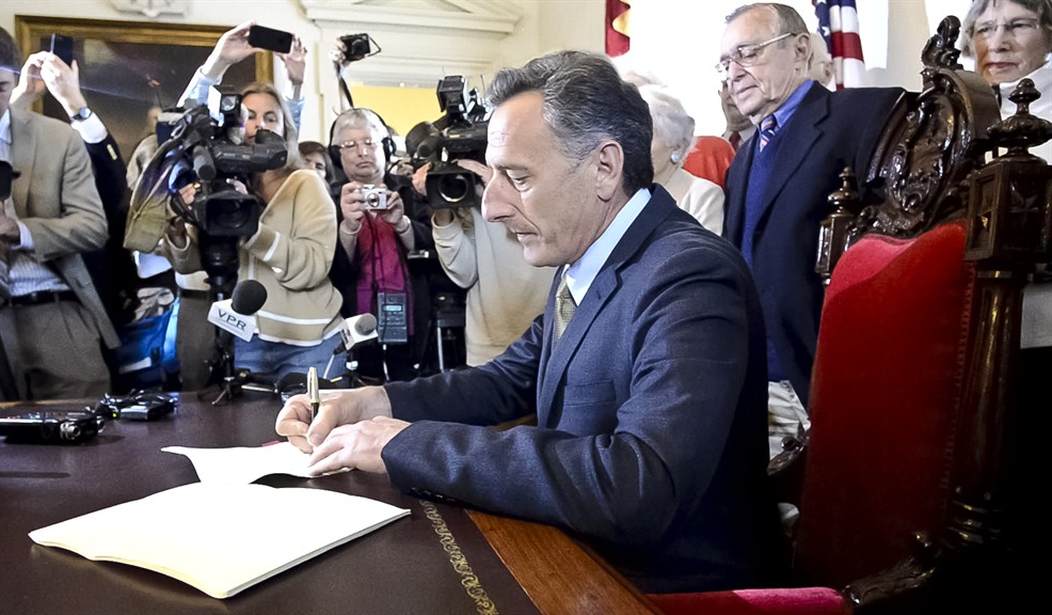Physician-assisted suicide, much like abortion and same-sex marriage, has become something of a cultural bellwether. Support for the right to end your own life indicates that you are a progressive-minded, compassionate person sensitive to the unique feelings and experiences of individuals facing terminal illness or chronic pain. It means you value the right of self-determination, and oppose the would-be tyranny of moral absolutes promoted by the politically conservative and spiritually religious.
The Disovery Institute's Wesley J. Smith recently penned a piece for First Things discussing the media's treatment of the issue of suicide. Smith cites a recent NBC story featuring NPR's Dianne Rehm, whose husband John committed suicide by dehydration and starvation to escape the ravages of Parkinson's Disease:
"In the story's telling, John's suicide was necessary. The only question should be how best to get it done. It is a profound disservice to the gravity of this issue that the media give scandalously short shrift to the many stories of people who find meaning and hope in life even as they grapple with the anguish of profound disabilities. But the stories are not hard to find – if only journalists were as interested in promoting hope as they are assisted suicide."
It is unfortunate, though not surprising, that the media has no problem presenting only one side of a story when the issue at hand is one deemed sacrosanct to secular progressives. The assumption has already been made: choosing death in the face of terrible suffering is as morally sound and as noble as choosing life, simply by virtue of it being one's own choice. This is essentially the same logic employed in defense of abortion, and it is equally as wrong-headed. Whether the choice is one to end your own life, or to willfully terminate the life of an unborn child, there is a huge moral difference between choosing life and hope and yielding to death and despair.
Recommended
The philosophy animating the right-to-die movement is that life's value is measured only by material standards. Once those standards are no longer being met, then life is no longer worth living. In contrast, those who view life as a sacred gift from God believe that every stage of life is precious and holds unique meaning, even during times of great suffering and even in the face of imminent death. A person's final time on this earth is a time for reflection and absolution, a time to share love and forgiveness. For those providing care, this time provides an invaluable opportunity to provide comfort and succor in a most profound way, and it affirms the fragile and precious nature of life.
These kind of experiences abound. We just don't hear about them on NBC or any of the other major news outlets because it would undermine the ideology of "choice" to which the media and other culture-shapers are fanatically dedicated. Smith tells the stories of two friends, one living, one no longer alive, who chose life and hope in the face of suffering and fear. Like John Rehm, these men were faced with illnesses that robbed them of everything that made them who they were, but instead of giving up hope, they chose to focus on enjoying all they could of the time left to them. They found themselves lifted up by the love of family and friends, and found their faith deepened. In the words of one of these men, Robert Salamanca, "life is worth living, and life is worth receiving. I know. I live it every day."
Undoubtedly, Mr. Salamanca had good days and bad days in the years leading to his eventual death. He certainly had days when it seemed he lacked the will to go on. But he persevered because he believed that his life was worth it, even if it didn't feel or look that way. He recognized that ultimately, his choice to live had a significance far greater than the impact on himself and his family. His choice to live testifies to the innate sanctity and dignity of every human life, regardless of age, size, location, or condition. This is a principle that is vital to a flourishing, civilized, humane society, and it is a principle that has fallen into grave jeopardy. Exchanging a "sanctity of life" ethic for a "quality of life" ethic puts the weakest among us at great risk. If our society adopts the notion that the terminally-ill are mere vessels of pain and decay – no longer worthy of our best efforts at care and comfort – it will set a dangerous precedent that will inevitably impact other vulnerable members of our society. If we continue on this path, more and more doctors, family members, and legal guardians will take it upon themselves to choose "death with dignity" a la Terry Schiavo for family members unable to advocate for themselves. It will be a culturally-accepted, celebrity-endorsed way to rid oneself of burdensome relatives, all in the name of dignity and compassion.
Since law tends to be a reflection of culture, it is incumbent upon policy makers to understand the implications of embracing the "right to die" movement wholesale. They will also do well to remember that the idea that there are some lives "not worth living" undergirded Adolph Hitler's Aryan-supremacy world view. His policy of eliminating the "unworthy" began with the mentally handicapped and physically disabled but spread to millions of Jews.
America is better than that. We have to be, or we run the risk of losing the very essence of the spirit that has made us the envy and inspiration of the world for the last two centuries.

























Join the conversation as a VIP Member